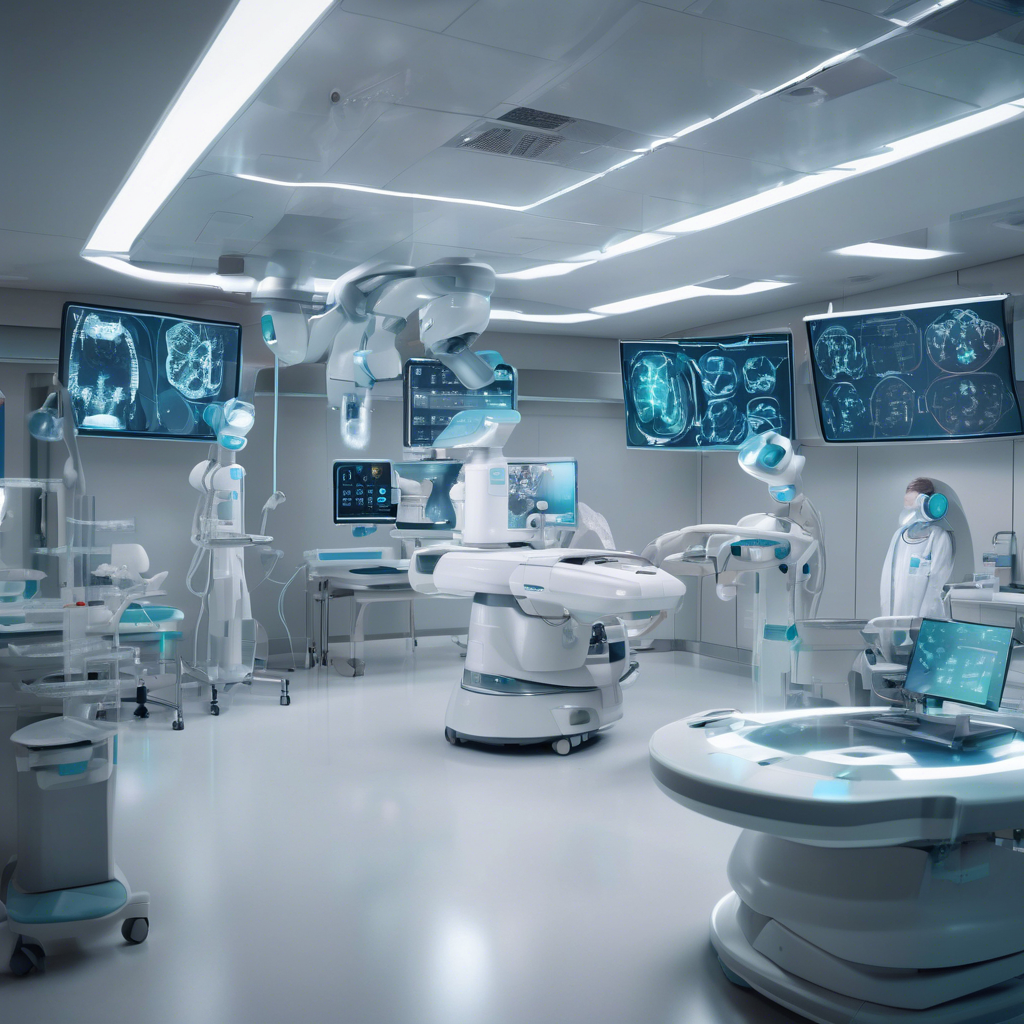
In the bustling tech hub of San Francisco, a vibrant discussion unfolded this week among some of the leading oncologists and healthcare innovators at STAT’s Breakthrough Summit West, shedding light on the transformative role of artificial intelligence (AI) in cancer care. The panelists, brimming with optimism, painted a picture of a future where AI becomes as integral to oncology as smartphones are to daily life or as self-driving cars are to modern transportation. This vision isn't rooted in sci-fi fantasy but in the rapid advancements already taking place, signaling a seismic shift in how cancer patients will receive care and crucial support in the near future.
AI’s current applications in oncology are as varied as they are promising. From intricate algorithms that assist in matching patients to highly specific clinical trials, to predictive models that evaluate how well a patient might respond to a particular treatment, AI is proving to be a game-changer. These tools possess the remarkable ability to dive into vast datasets and uncover insights that traditional research focused on singular hypotheses might overlook. Karen Knudsen, the energetic CEO of the Parker Institute for Cancer Immunotherapy, spoke passionately about the vast opportunities AI offers, particularly in addressing workforce shortages in healthcare by ensuring patients receive the most advanced and timely care possible. "I’m completely bullish on AI. It’s inevitable," she declared, underlining the sentiment that embracing AI is not just beneficial—it’s unavoidable.
While the technological marvels of AI are captivating, the real challenge lies in its acceptance and integration into daily clinical routines. Physicians are cautious, emphasizing the need to discern the strength and reliability of AI-generated insights. AI, as the experts unanimously agreed, is a powerful assistant but not a replacement for human judgment. Danielle Bitterman, a radiation oncologist deeply involved in data science at Mass General Brigham, highlighted a tangible example: just days before the summit, she leveraged AI tools to craft an optimized radiation treatment plan, balancing efficacy and safety for a patient. This is akin to having a brilliant consultant quietly working behind the scenes to ensure every decision is well-informed. Yet, for AI to truly flourish, doctors need clear ways to interpret these tools' findings and understand their limits.
Intriguingly, AI’s intrusion into oncology isn't merely about crunching numbers or analyzing scans. Karen Knudsen shared fascinating insights from her tenure at Jefferson Health involving an unexpected discovery made possible by AI analysis. Doctors traditionally expected factors like BMI or blood pressure to predict a patient’s likelihood of readmission to the hospital after a cardiac event. However, the data revealed that a patient’s credit score was a more significant indicator—a revelation that sparked a broader conversation about social determinants of health and prompted new support strategies for at-risk patients. This example beautifully showcases AI’s power to illuminate hidden patterns, encourage holistic care, and challenge preconceived notions in medicine. It's a bit like finding a key in a place where you least expected it, opening doors to better patient outcomes.
The road to embedding AI into cancer care isn’t without hurdles. Trust, transparency, and training are vital elements yet to be fully realized. Bitterman cautioned that it remains challenging for both clinicians and patients to fully grasp how AI reaches its conclusions, which fuels skepticism and hesitance. Moreover, much of the ongoing research has focused on physicians’ attitudes toward AI, with fewer studies exploring patients' perspectives—a gap that may influence acceptance rates. Current AI models, while promising, have achieved moderate success, with tools like Open AI's HealthBench rating top models at about 60% accuracy according to physician-graded benchmarks. Still, the consensus among the experts is hopeful: as these systems improve, the reluctance is expected to fade, and soon it might be deemed unethical not to employ AI’s lifesaving assistance in clinical decision-making.
Clifford Hudis, CEO of the American Society of Clinical Oncology, provided a relatable metaphor to envision AI’s imminent role in the clinic. Comparing AI’s integration to the ubiquitous presence of AI prompts on smartphones, Hudis foresaw a future where clinicians routinely receive patient-specific nudges—reminders, insights, and alerts—that seamlessly enhance their workflow and patient care. He emphasized how the explosion of genomic data has refined cancer classification to an almost bewildering degree, making it untenable for any one clinician to be an expert in every nuanced subtype. AI stands ready to fill that gap, offering real-time, expert-level insights to guide treatment choices. This vision reflects a harmonious partnership where AI amplifies human expertise, much like a GPS guiding an experienced driver through an ever-evolving road network.
The tale of AI in oncology today is still in its early chapters—small ripples growing into a tidal wave of innovation and integration. With pioneers like Knudsen, Bitterman, and Hudis steering the discourse, it’s clear that AI’s journey will be marked by both excitement and thoughtful caution. Patients and physicians alike will need education, transparency, and collaboration to harness AI's full potential. Just as no one needed to understand the complex physics behind electricity to benefit from it, clinicians won't need to become AI experts to leverage its tools effectively. In this unfolding story, AI is poised not to overshadow the human touch but to amplify the compassion, precision, and hope at the heart of cancer care.
#ArtificialIntelligence #CancerCare #OncologyInnovation #HealthTech #FutureOfMedicine #AIInHealthcare #PatientCare
Leave a Reply